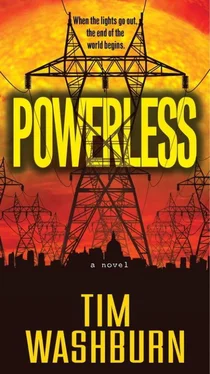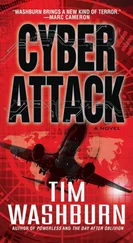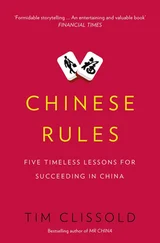“Director Carter is here, sir.”
“Send him in please, Barb.”
The President stands and meets the FEMA director mid-room and steers him to one of the sofas. Alexander kills the sound and tosses the remote on the side table before moving to one of the facing chairs.
President Harris points toward the television. “Anything we can do about New Orleans, Don?”
“We’re doing everything we can, sir, but we’re spread thin. The Corps of Engineers is working like hell to replace the pumps, but that’s like putting a Band-Aid on a bullet wound.” Don pauses for a moment, then throws up his hands. “It may be time, sir, to write that area off. If we’re truly going to be without electricity for months or years, New Orleans will become an uninhabitable swamp.”
“Do what you can, Don, at least while we still have power. How’s the rest of the country?”
“Nothing good, Mr. President. Most of Alaska is without power, as are portions of Canada and the higher elevations of Colorado. The Canadians are dealing with a potential meltdown at their Atlantic coast nuclear reactor. I put all state FEMA departments on urgent status and all available workers are en route to their designated areas. But I have to tell you, sir, I don’t know how much urgency there will be without some indication of what is happening. Are you still planning on addressing the nation?”
President Harris glances at Scott before answering. “We’re still debating the merits.”
“But, Mr. President, we need to offer the people some type of warning. I haven’t given specific instructions to the state agencies on what to prepare for, but I would like—”
The intercom buzzes again. The President punches the button, “Yes, Barb.”
“Sir, there’s a call which came through the White House switchboard from a Dr. Samuel Blake, claiming he needs to speak—”
“Put the call through, Barb.” He waits for the phone call to be routed through, then punches the flashing button putting the call on speakerphone.
“Sam, what’s the latest?”
“I’ve been trying to get a call through for the past hour, sir. I don’t think we have eight hours.”
“How long do you think?”
“I think it could happen at any moment, may already be happening. Our remaining instruments are indicating massive spikes in the Earth’s magnetic field. The electrical interference is off the charts.”
“What are you telling me, Sam? We’re too late to do anything?”
“Maybe, Mr. President.”
The President’s shoulders sag. “Okay, Sam, I’ll send out the word. Are you in a safe place?”
“I don’t know, Mr. President. There may be no safe places when the power goes out.”
Silence. Then the President says, “I’m going to do everything I can to make sure we have safe places, Sam. Take care.” President Harris reaches over and disconnects the call.
“This is it?” Don asks.
President Harris nods. Then, in a toneless voice, says, “Make sure we have some way to communicate, Don. Tell your people to be ready for the worst, and tell them to stay out of harm’s way as much as possible.”
Carter stands from the sofa on shaky legs. “I will, Mr. President.” He turns and shuffles out of the office.
President Harris turns to Alexander. “Scott, will you get Janice on the line, please? I guess our decision to notify the public is now moot.”
“I will, Mr. President.” His reply is a raspy whisper as he steps behind the desk and dials the phone. He murmurs a few words into the handset. “Line one, sir.”
The President pauses before picking up the handset. “Scott, where’s the First Lady?”
“Over at the Park Hyatt giving a speech to a group of college students.”
“Call her detail and tell them to hustle her back to the White House.”
“Yes, sir.”
President Harris punches the button. “Janice, alert all of the law enforcement units across the country to be on emergency status. Explain what is going to happen and tell them to prepare for the worst. This country may be overrun by lawlessness. I also want you to order a national emergency alert.”
“What’s changed, Mr. President?” she says.
“According to Dr. Blake, it may already be happening. I don’t know how much time we have, but do what you can.”
“I will, sir.” The phone goes dead in his hand.
President Harris pushes up from the sofa and shuffles over to the windows, muttering, “God have mercy on us all.”
Fairbanks, Alaska
Wednesday, September 29, 4:26 P.M.
Junior Hickman, a large, barrel-chested man, climbs into the bucket truck to make one final line connection before he and the crew break for lunch. With the temperature hovering around thirty-three degrees, he’s working in a sleet-snow mix interspersed with a bone-chilling rain. He gives a thumbs-up to the other two men on the crew and, using a joystick attached to the bucket, begins his ascent toward the new high-voltage line they’re building along Route 2, on the outskirts of Fairbanks.
Junior, a twenty-five-year veteran lineman for Alaska Power and Light, has experienced the extremes of Alaskan weather. The day-after-day cold that seeps into his bones during the winter months and the battles with swarms of mosquitoes during the summer. He extends the boom to near-maximum capacity to reach the lower wire. Because the HVDC—high-voltage, direct current—line is not yet energized he forgoes the elbow-length rubber gloves and doesn’t bother with the rubber shields in the area he will be working. To finish this section of line, Junior needs to pigtail a bridge line between two wire terminations so the electrical current can travel from one section of line to another.
The cold, wet conditions make it difficult for Junior to get a firm grasp on the six-foot piece of heavy cable. He slips the wire over his shoulder and works on one end at a time. With a specially designed clamp he secures the first end. He jogs the joystick to position the bucket closer to the other end for the final connection. With his right hand, he reaches for the suspended cable to attach the other end of the pigtail. As his wrench meets the clamp’s bolt the two fuse together. Almost instantaneously, Junior Hickman is vaporized by over one million volts as the unseen geomagnetic storm slams into Fairbanks.
The nonmetallic fiberglass bucket, specifically designed not to conduct current during electrical repair work, suffers no ill effects. However, the small joystick handle was not subjected to the same design specifications. The bucket is parked within a hair’s distance from the power line, and the surge of electricity arcs to the handle and instantly melts the wiring. As the massive power surge searches for ground, the current races down the truck’s boom, killing Junior’s coworker, who had been leaning against the truck sipping a cup of coffee.
The third coworker, who had been standing some distance away, stares, his mouth agape, uncertain what he has witnessed. One immediate thought surges through his mind: those lines weren’t due to be energized for another three months. He fumbles for his cell phone and, because his hands are shaking so violently, has to hold the phone with both hands to punch in 911 with his thumb. He puts the phone to his ear while his mind spins for a valid explanation. The phone is dead. He pulls it away and glances at the screen to see the words NO SERVICE in the upper left corner.
The worker, in his third month on the job, turns in a tight circle, not sure what to do. He steps toward his coworker on the ground. It’s clear he’s dead, or at least his chest is still, but there’s no way in hell he’s checking for a pulse. He kneels down, calling out the man’s name, his voice rising an octave with each repeat.
Читать дальше












